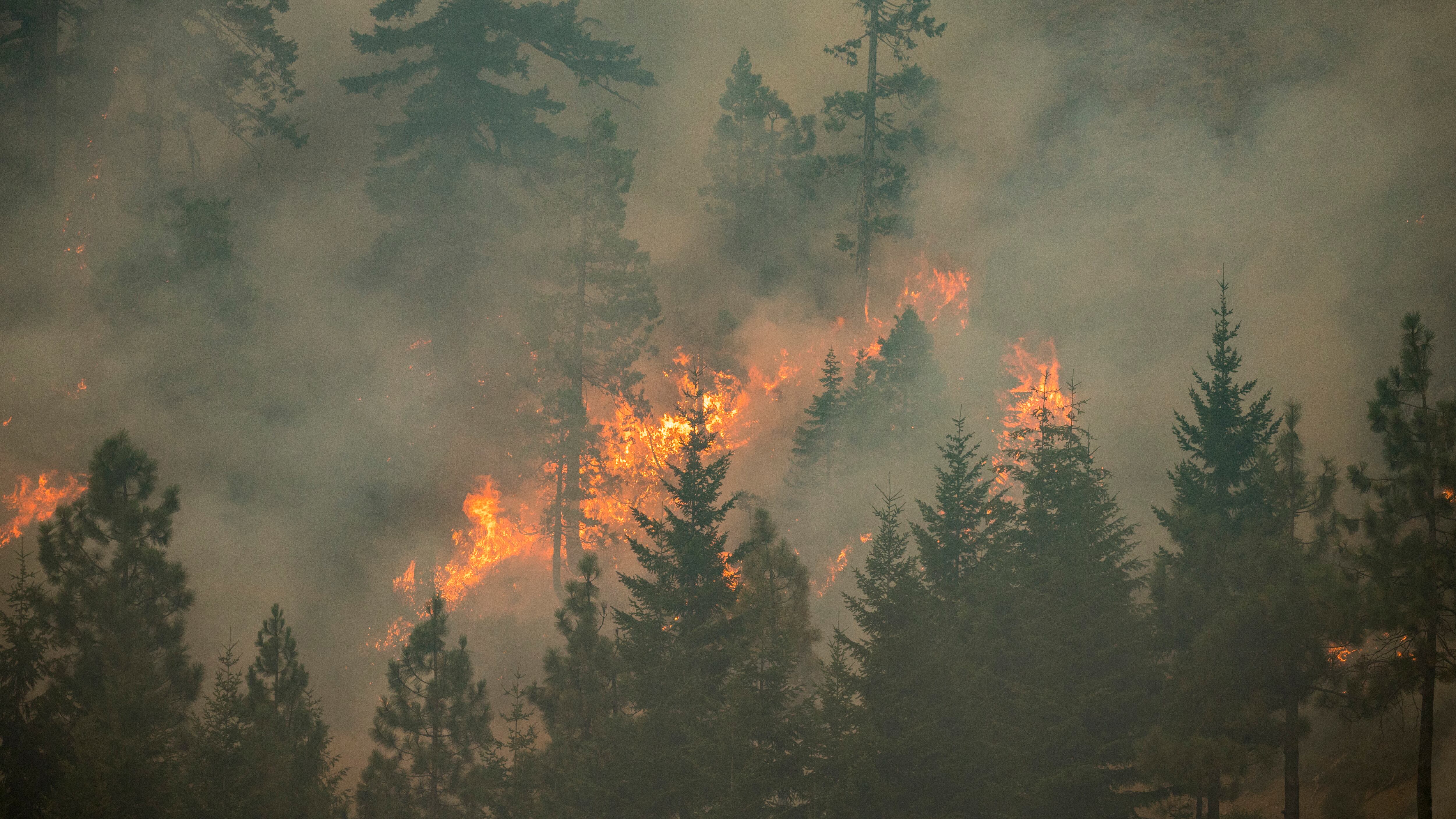The wildfires that ripped through Calfornia over the last two weeks are an example of what's to come as climate change progresses. A new study from the Natural Resources Defense Council warns of the increased health costs of wildfires on the West Coast as the climate crisis progresses.
Related: 271 Oregon Firefighters Travel to California to Help Fight Blazes
The study found that the size and frequency of wildfires and the duration of wildfire season have all "increased significantly" since the 1970s. Last year, the cost of firefighting in Oregon hit a record high of $514 million. And, during one year in 2012, economists estimated that "wildfire smoke in Oregon caused 226 premature deaths, 1,986 emergency room visits and 92 hospital admissions for lung and heart ailments, and $2.1 billion in total health costs in one year alone."
"Given the links between climate change and wildfire risks, these estimates signal billions more in health costs from wildfires in Oregon in recent years (including 2017's devastating Eagle Creek fire)," the study continued, "costs that are largely neglected in public understanding of the economic impacts of wildfires."
In August 2018, because of its proximity to dozens of wildfires, Portland briefly had the third-worst air quality of any major city worldwide. Today, the Department of Air Quality issued an air quality advisory through Wednesday, but spokesperson Laura Gleim says the warning is not due to smoke from California.
"It's related to air stagnation which traps pollution being created in local communities," Gleim says. "That's why several local jurisdictions [including Multnomah County] issued wood burning restrictions for wood stoves and outdoor burning."
Last year was also the hottest year in Portland history. The city surpassed its annual record for number of days above 90 degrees Fahrenheit. This year, according to NRDC researchers, parts of western Oregon and Washington are already experiencing moderate to high drought conditions. And the hot, dry weather is only expected to get worse.
"Because climate change is fueling more damaging wildfires," the study read, "these costs are poised to rise in the future if we fail to urgently respond to our climate problem."
